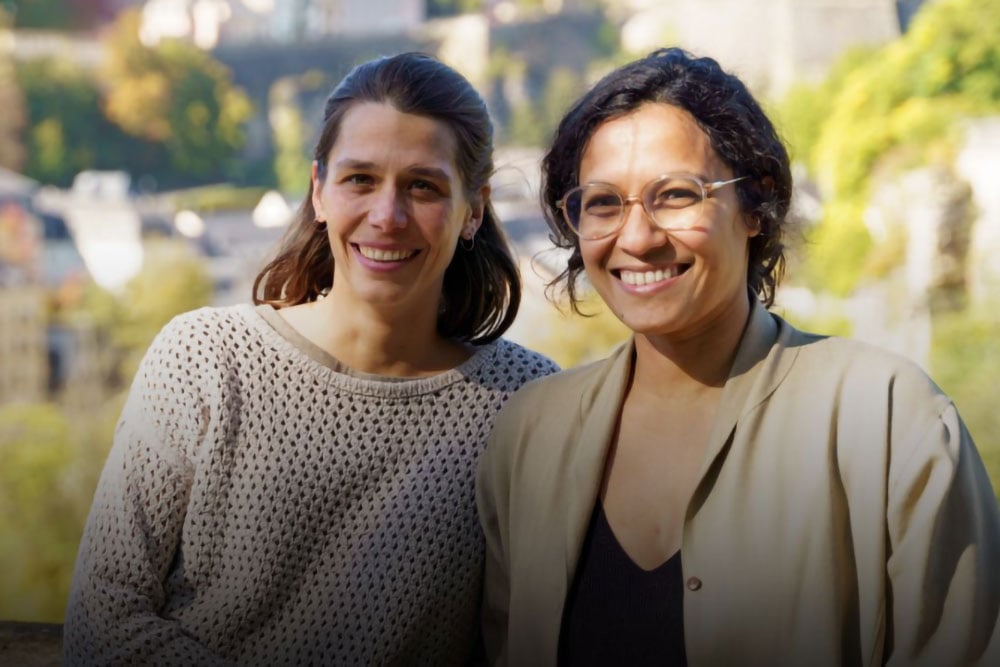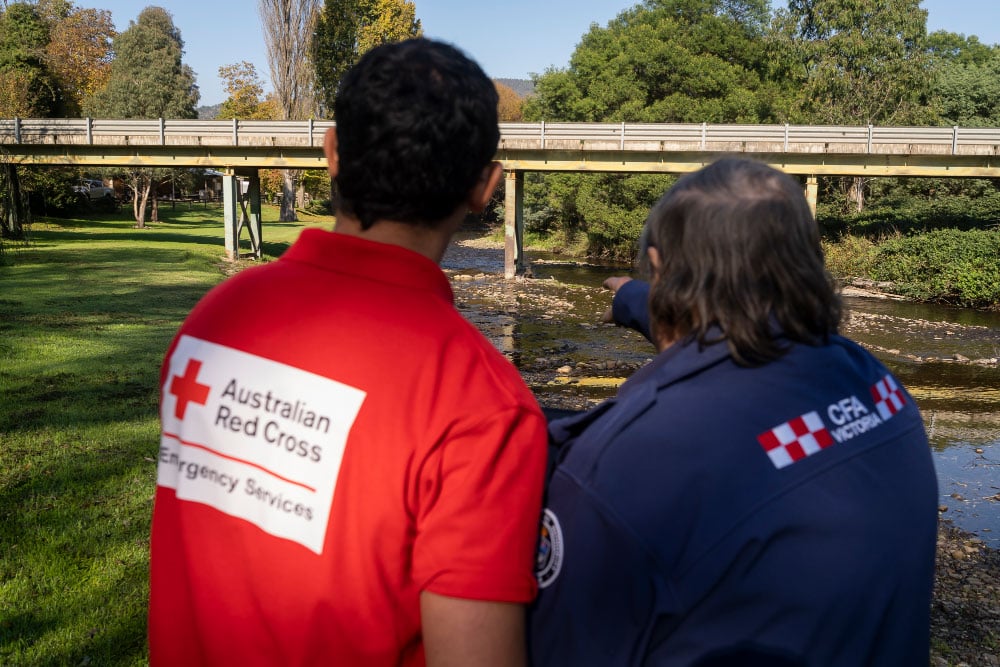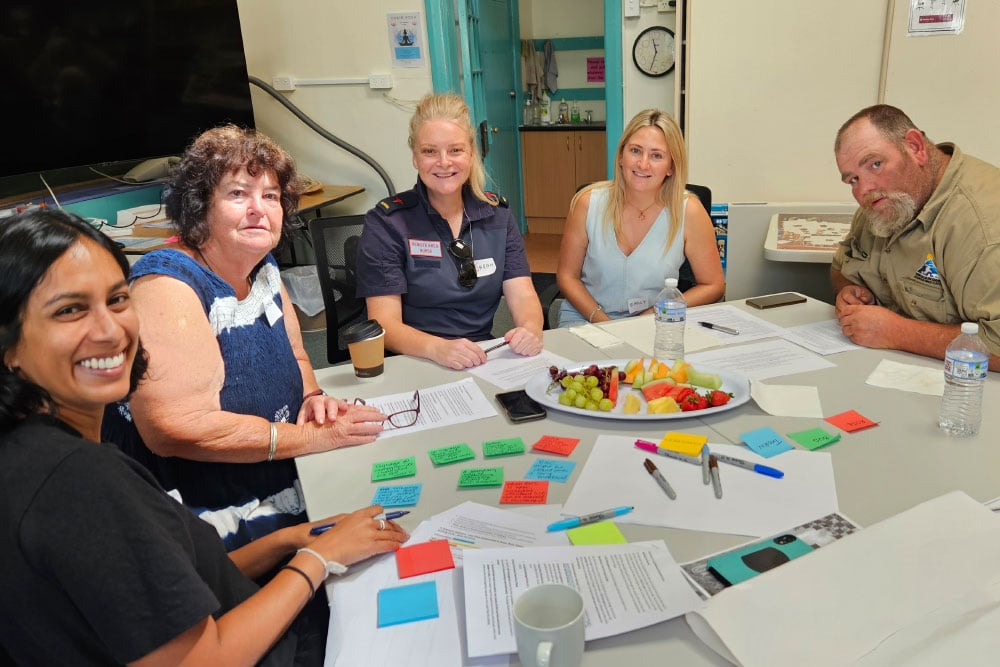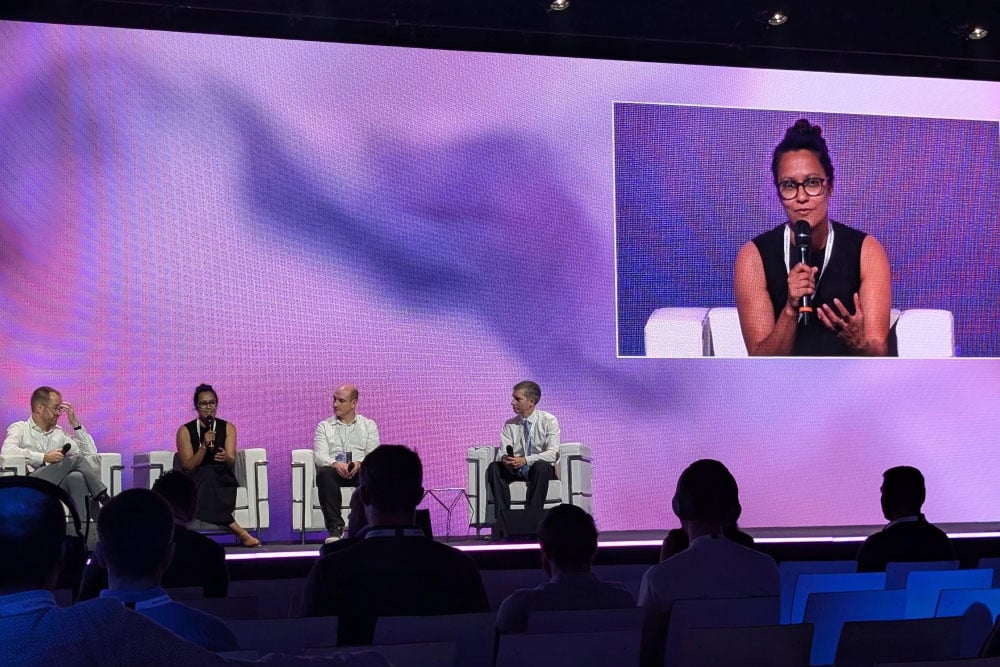
WEO on winning the QBE AcceliCITY Humanitarian Challenge
From data to decisions.
Resilience isn’t built in the moment of disaster – it’s built in the planning, decisions and everyday actions that come before. Last year’s QBE AcceliCITY Humanitarian Challenge winner, WEO, is showing how data and community knowledge can come together to strengthen resilience.
We spoke with WEO’s founder and CEO, Imeshi Weerasinghe, about the journey from startup to Challenge winner – and what others can learn from their experience.

Climate tech without the training wheels
What do most people misunderstand about your sector?
That you need a PhD to use climate tech. If a tool isn’t immediately intuitive, it’s a barrier. The people who need these tools most are not researchers in a lab; they’re volunteers at the local fire shed, parents juggling kids on a scorching day or council workers deciding where to put the next patch of green. We build for them – tools that are easy to understand, fast to use and genuinely useful when decisions can’t wait.
Climate intelligence should feel less like decoding a satellite image and more like checking the weather on your phone – immediate, usable and empowering.
At WEO, we use satellite data, AI and local knowledge to help communities and governments see climate risk – and act on it. Our platform creates high-resolution, real-time maps that show where people are most vulnerable and how those risks are shifting as the climate changes. What makes it different is how it connects the dots: combining environmental data with insights only locals can provide – like which roads flood first or where people gather when the power cuts out. The outcome is risk profiles that are not just data-rich but deeply human.
Why this Challenge?
Why did you apply for the QBE AcceliCITY Humanitarian Challenge?
The QBE AcceliCITY Humanitarian Challenge offered something rare – the chance to move beyond funding and into real-world impact. The opportunity to work directly with Australian Red Cross and pilot our solution in a high-risk community meant we could shape something meaningful, grounded in lived experience and humanitarian expertise.
Other challenges end at the pitch. This one puts you side by side with community to build something people will actually use.

From tool to infrastructure
When did you realise you were onto something real with WEO?
When city planners tried the platform and not only asked us for more layers, but signed on long-term – committing to 5–10 years. That mix of immediate demand and long-horizon trust showed us we weren’t just building a tool, we were building infrastructure.
The Challenge reinforced that. Seeing volunteers and residents use their own insights to shape the maps proved this wasn’t our tool anymore – it became theirs.
Co-design with Dargo
What was most valuable to WEO in the Challenge?
The co-design process with the Dargo community. It showed us how much richer the platform becomes when lived experience is integrated with technical data.
The community workshops were a highlight. Even though I joined virtually, I could feel the energy in the room – the dialogue, the stories and the sense of ownership people took. That was a powerful reminder of why we do this work.
Working with Australian Red Cross was equally important. They brought deep community relationships and an understanding of what matters in a disaster. That made our tech stronger and more relevant, and opened new doors both in Australia and internationally.

Principles that shape the work
What principles do you never compromise on?
Accessibility – and that includes affordability. If the solution isn’t understandable and usable by the people most exposed, from households to councils, then the technology has failed. And if it’s priced out of reach, it’s just as useless.
And what does ethical innovation mean to you?
Building with transparency, reducing bias and keeping access at the centre.
Innovation isn't ethical if it hides how it works or privileges one group's data over another. For us, it's about designing tools people can trust and afford – whether they're a global city, a small town or a community group.
Looking ahead
What’s next for WEO?
Winning the Challenge accelerated our development and gave us the credibility and networks to scale – from regional Australia to East Africa and beyond. Next, we’re focused on keeping the platform simple but more adaptable, and we’re looking for partners – cities, NGOs, companies – to co-design pilots in their own contexts and help us broaden the data sources that power it.

Advice for startups
What advice would you give to this year’s applicants?
If you’re serious about impact, this is the Challenge to enter. It’s not about the best pitch – it’s about the best collaboration. Come in with curiosity and humility, not certainty. The more you listen, the more relevant and impactful your solution will become.
The Dargo pilot emerged through the QBE AcceliCITY Humanitarian Challenge – a partnership between Australian Red Cross, QBE Foundation and Leading Cities, and was made possible with funding support from The Coca-Cola Foundation.
Applications for the 2025 QBE AcceliCITY Humanitarian Challenge closed on 30 September 2025. Find out more here: Humanitarian Challenge
